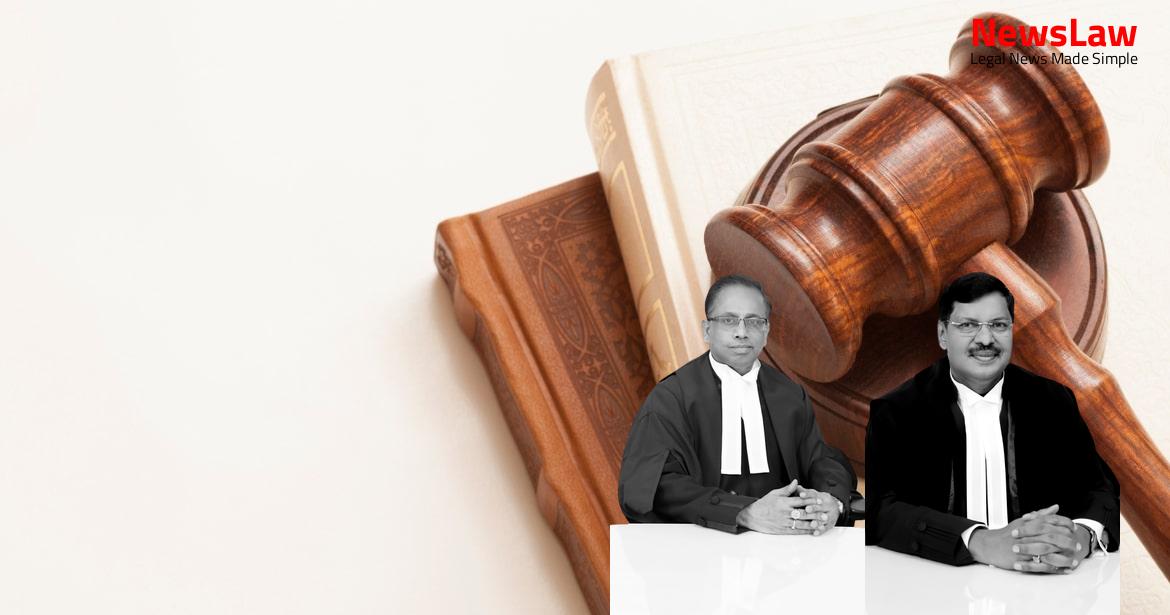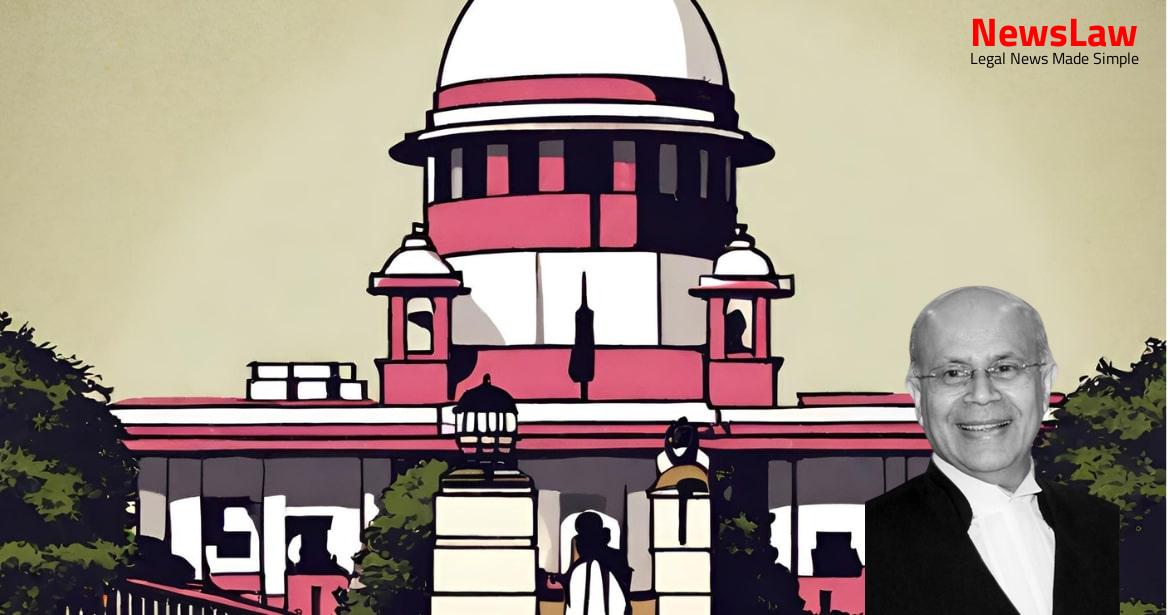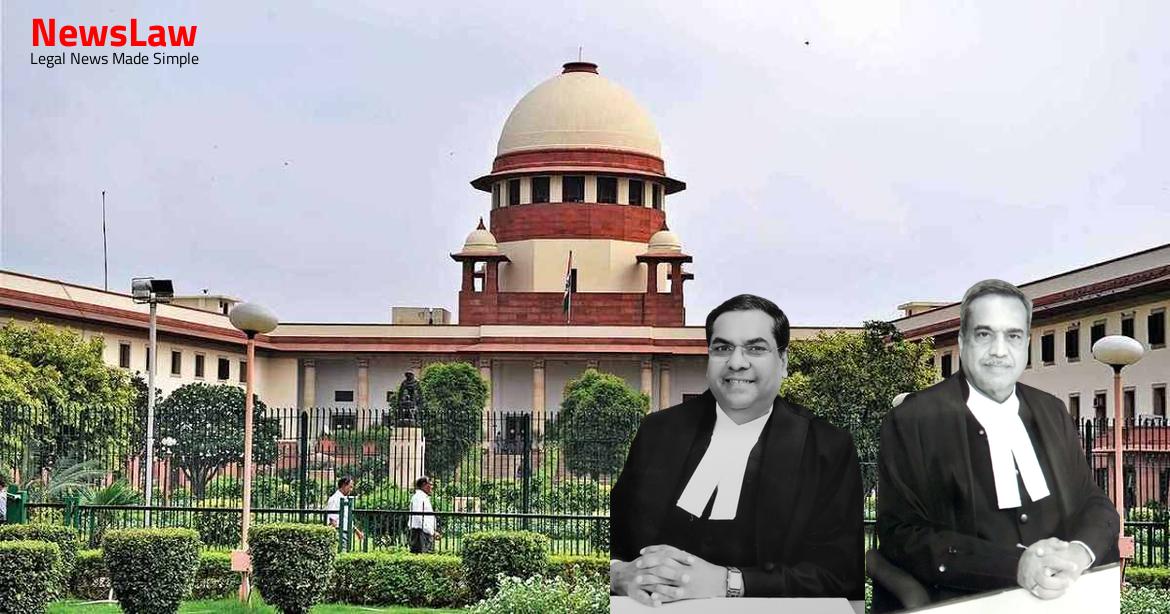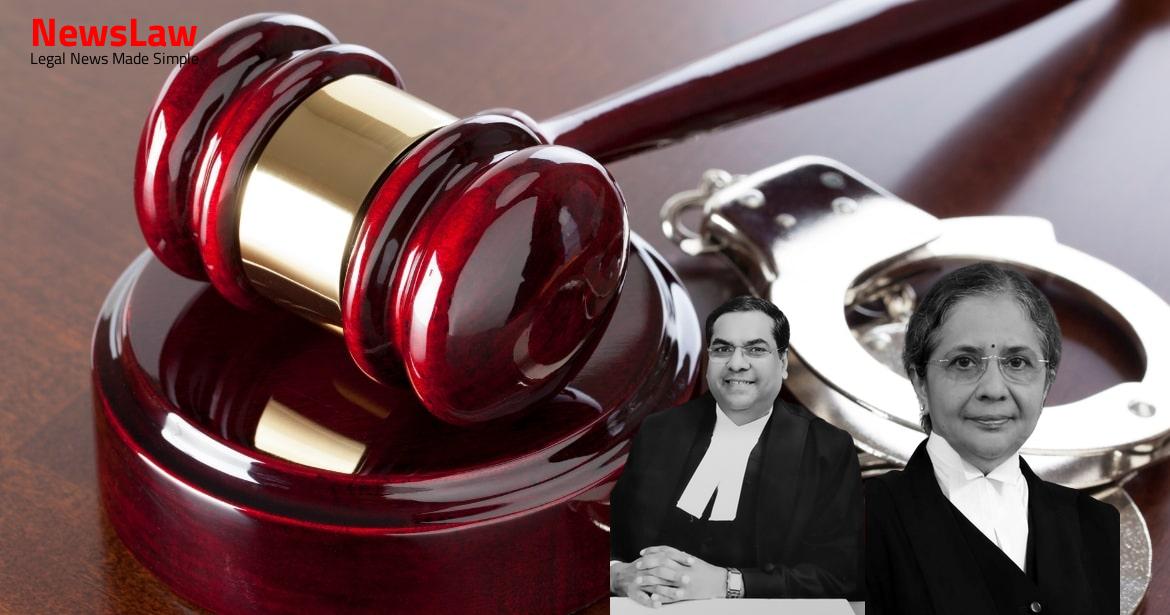In a significant judgment by the Supreme Court of India, the case of Das v. Das revolves around the custody rights of the father over the minor child, Sugandha Das. The rights of the natural guardian to seek custody have been recognized, ensuring the welfare of the child is upheld. The decision sheds light on the importance of family dynamics and the well-being of minors in legal proceedings.
Facts
- Appellant married Ms. Subrata Das in 2012 and had two children.
- Appellant lost his wife to Covid-19 in April 2021 when their daughter was only 10 days old.
- After the loss, the custody of the children was temporarily with the appellant’s sister-in-law.
- Appellant filed for custody of his daughter in 2023 under the Guardians and Wards Act.
- Despite court orders for visitation rights, the custody of the daughter remained with the sister-in-law.
- Appellant approached the High Court seeking custody of his daughter but was directed to approach the family court.
- The interim arrangement for custody continued with the sister-in-law causing the appellant to appeal to the Court.
- The Court, on prima facie consideration, recognized valid grounds for the appellant to claim custody of his minor daughter.
- The Division Bench interacted with the parties and referred the matter to mediation for a solution.
- An interim arrangement for visitation rights was established based on the mediator’s report.
- The High Court, in its final judgment, disposed of the writ petition and granted liberty for the parties to approach the family court for further proceedings.
Arguments
- The appellant, who is a natural guardian, is seeking custody of his own child, Sugandha Das.
- The High Court’s dismissal of the petition was considered to be a gross error by the appellant’s counsel.
- The appellant’s counsel urged for the quashing of the High Court’s order and for the immediate handover of custody of Sugandha Das to the appellant.
- It was argued that Sugandha Das would be deprived of the company of her biological brother if not given custody to the appellant.
- The appellant, his son, and his wife have a good relationship with Sugandha Das, as shown through various photographs.
- Staying with her father in Delhi was deemed to be in the best interest of Sugandha Das, especially as the appellant is her only surviving biological parent.
- The appellant, being the natural guardian, has more legal rights over Sugandha Das compared to respondent Nos. 5 and 6.
- Various allegations made by respondent Nos. 5 and 6 against the appellant include ill-treatment of the appellant’s first wife, Late Ms. Subrata Das.
- The appellant voluntarily handed over custody of the minor child Sugandha Das to respondent Nos. 5 and 6.
- The appellant’s withdrawal of the petition under the Guardian and Wards Act, 1890, raised a question on the filing of a habeas corpus petition before the High Court.
- Cases like Dr. (Mrs.) Veena Kapoor v. Shri Varinder Kumar Kapoor, Nirmala v. Kulwant Singh and Others, and Athar Hussain v. Syed Siraj Ahmed and Others were cited by the learned counsel representing respondent Nos. 5 and 6.
Also Read: MBBS Seat Allocation Case: Supreme Court Rules in Favor of Meritorious Candidates
Analysis
- The father, being the natural guardian, sought custody of the minor child under Article 226 of the Constitution of India.
- The circumstances leading to temporary custody with the sisters of the deceased wife were due to unfortunate events like illness and death.
- The appellant’s remarriage and stability allow for him and his new wife to care for the child.
- Observations from similar cases like Tejaswini Gaud highlight the entitlement of the father to custody and the welfare of the child being paramount.
- The father’s education, stable economic condition, and ability to provide for the child are factors supporting his custody claim.
- The father’s fitness must be determined based on the welfare of his minor children.
- Factors to consider include ethical upbringing, economic well-being, ordinary comfort, contentment, health, and education of the child.
- The appellant being the natural guardian should ensure the welfare of the minor child by living with her natural family.
- The decision to exercise jurisdiction under Article 226 of the Constitution of India varies with the facts of each case.
- The paramount factor in custody cases of minor children is the welfare of the child.
- The minor child, being of tender age, will adapt well to her natural family.
Also Read: Judgment in the Case of Altercation During Marriage Procession: Supreme Court of India
Decision
- The appeal is allowed.
- The impugned judgment and order of the High Court is quashed and set aside.
- Sugandha Das is to be handed over to the custody of the appellant immediately.
- Respondent Nos. 5 and 6 are allowed to meet Sugandha Das at the appellant’s residence every Wednesday between 04:00 pm and 06:00 pm.
- Any pending applications are disposed of.
Case Title: GAUTAM KUMAR DAS Vs. NCT OF DELHI (2024 INSC 610)
Case Number: Crl.A. No.-003447-003447 – 2024



